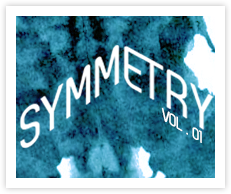

Politics don’t have to be a team sport
Joshua Robin Young // October 11, 2012

You’ve probably heard by now. Mitt Romney hates half of all Americans, he believes that Palestinians are emotionless war robots, and he loves firing people (so much that he made it his job). He is driving his campaign of destruction towards the Whitehouse and, when he gets there, all hell will break loose: same sex relationships will be outlawed and we’ll all be left to the mercy of the corporations.
That’s not to say Obama is much better. His dark secrets may not be as public as Romney’s, but they are no less frightening. Turns out he’s been maniacally manipulating the U.S. employment data to dupe Americans into re-electing him, he’s forged his birth certificate to conceal his identity as an Arab, jihadist, and terrorist. And, we can’t forget about his plans with his other socialist/communist comrades to slowly tax to death the American people while he grows government into some kind of monstrous, all-seeing big brother that controls every aspect of our lives.
Other than sounding like the worst nightmare the opposite party’s communications department can concoct, these two views of reality make each candidate for president sound as though they are a storybook villain. These views sound ridiculous because they are. Yet, it is this kind of rhetoric that is thrown around in many political circles these days. The examples given are especially absurd, but they serve the point I am trying to make. Politics has too often become a team sport in which supporters loyally cheer for their side while dutifully demonizing the opposition. And Canada is just as guilty.
A very large portion of voters align themselves exclusively with one of the major political parties and will defend the actions of their party no matter what. It is a lazy brand of politics, alleviating them from actually considering each issue on its own merits and where each party stands on the matter. Instead, supporters of each side allow themselves to be led blindly by their party of choice, simply supporting whatever policies their party supports. It is not true intellectual decision-making; it’s blind sheepism.
In Public Relations, as in politics, it is relationships that are important, and communication is vital to ensuring your relationships are healthy. Communication has become dysfunctional and cynical between opposing political parties and their supporters. This has created a toxic environment in which each side is working harder to undermine their opponent than they are to actually propose solutions to the problems facing our country. Attack ads, the never-ending campaign, and the general hatred each side holds for one another are great examples of this.
It is not until political parties and their supporters (that means us!) begin promoting a culture of understanding and REAL two-way communication, in which each team truly considers the other side’s ideas, that we will begin to solve the problems facing our country. That means contemplating that Mulcair’s proposed cap-and-trade policy may be exactly what Canada needs to reduce greenhouse gas emissions, or that Stephen Harper’s decision to lower corporate taxes may have saved the Canadian economy in a time of extreme fragility. I’m not saying that either of these statements is true, but we won’t truly know until we listen with an open ear and an attitude devoid of cynicism. It is not contrasting views that we should deride, only the willful ignorance of contrasting views.
Neither side will ever have all the right answers; indeed there are no “right” answers. However, we have a better chance of finding the “best” answers if we set aside our political weaponry and allow ourselves to have respect and understanding for the people, political parties and ideas with whom and with which we disagree. When we do, we may be amazed at what is accomplished.
___________________________________________________________________________________________
 Joshua Robin Young usually goes by Robin but he won’t correct you if you call him Josh. He’s a 5th year Public Relations student who won’t graduate for another year and a half – the scenic route is always better anyway. He loves voting and sandwiches almost equally, and is always up for a good joke. He is currently hosting a web-based show covering news from Halifax, Nova Scotia and Canada with MSVU Public Policy student, Sean Joudry. It’s called the Bluenose Bias.
Joshua Robin Young usually goes by Robin but he won’t correct you if you call him Josh. He’s a 5th year Public Relations student who won’t graduate for another year and a half – the scenic route is always better anyway. He loves voting and sandwiches almost equally, and is always up for a good joke. He is currently hosting a web-based show covering news from Halifax, Nova Scotia and Canada with MSVU Public Policy student, Sean Joudry. It’s called the Bluenose Bias.
-
Magwit
